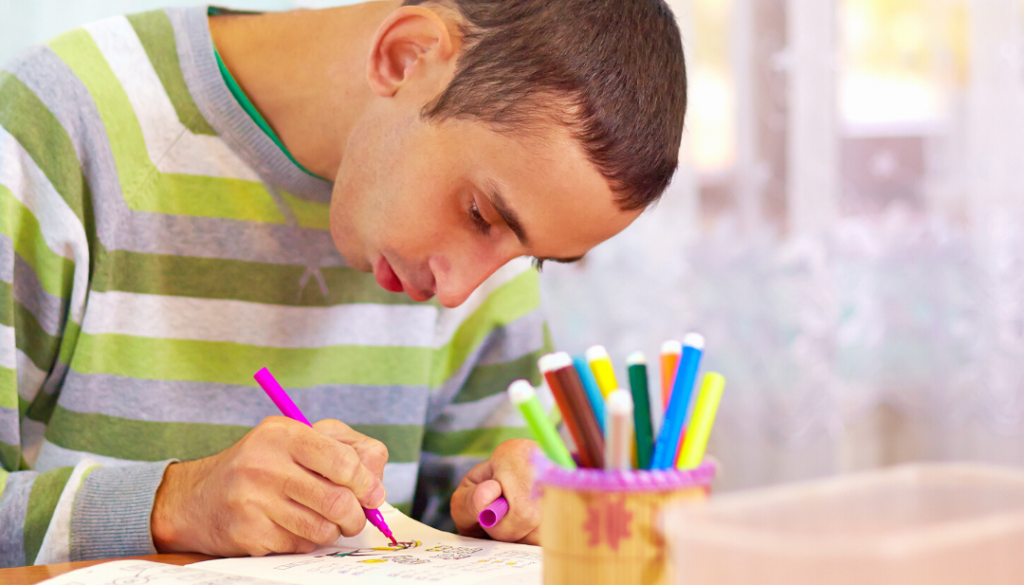12 suggestions to help you to help yourself while staying at home!
For a more pictorial, easy read, version of the blog post below, please follow this link to a helpful PDF document!
While staying at home, you may begin to feel bored, frustrated or lonely, but do not worry as you are not alone, lots of us do! You may also be low, worried, or anxious about your finances, health and the health of your family members. You are not alone, a lot of us do.
It is important to remember that most of us feel this way, and everyone reacts to situations differently. It is good to keep reminding yourself that what’s happening is temporary and, for most of us, these challenging feelings will soon pass.
That’s why we’re urging you to stay at home, even though it may be difficult, as doing so will help to protect yourself and prevent the virus from spreading. It is also essential to take care of your mind, as well as your body, so here are 12 suggestions to help you to help yourself, and those close to you while staying at home and avoiding COVID-19.
- Try and limit the amount of news you watch or listen to. Maybe try to do this once or twice a day, and turning off news alerts on your phone can help. Please bear in mind that not everything posted onto social media is factual. Some trustworthy sources include GOV.UK and the NHS Website.
- Look into your employment and benefit rights if you are worried about work and money. Knowing all the details about what the coronavirus outbreak means for you can reduce your worrying and help you to feel more in control. The Citizen Advice Bureau post useful information on their website, which may be of help.
- Plan practical things. Make sure you know how you can get the food and household supplies that you need. If you are struggling, please don’t be afraid to ask neighbours, family, friends or carers for help. It would be sensible to use online shopping, getting it all delivered directly to your doorstep.
Where it is possible, continue to access treatment and support for any existing physical or mental health problems, but make sure you check all appointments are valid before you leave your home. If regular medicine is needed, contact your GP and see if you can order repeat prescriptions by phone or online via their referred website or app. Medication can also be delivered, but you would need to contact your pharmacy first to find out if they can deliver to you.
Finally, if you care or support others, think about how you can help them while you are staying at home. Please inform your local authority if you do care or support someone who isn’t living with you. Carers UK also has further advice on creating contingency plans.
- For a while, your life is going to change, so why not think about your daily routine. With some disruptions in mind, think about how you can adapt your current routine to match the change in circumstances. Maybe think about setting yourself some daily goals to achieve. However, if you are working from home, try and get up and ready at the same time and way that you would typically do, remembering to eat and go to bed at the same times too.
- Staying connected with people you trust is essential for your mental wellbeing. While staying at home, think about the different ways which you can keep in touch with friends and family. Some examples include by phone, messaging, video calls or social media. Even reconnect with old friends and have some catch-ups over the phone.
- Having concerns about the coronavirus outbreak is perfectly normal. Some of us will experience more anxiety than others, and it can affect your day-to-day lives. If your anxiety is impacting your life, please try and focus on the things you can control, such as the way you act, how you live your life and the people you speak to.
It is normal to acknowledge that some things are out of your control, but consistent negative thoughts can make you feel overwhelmed. The NHS has a handy page on anxiety, which we recommend you give a read.
- It is good to talk about your worries and concerns. Talking to people that you trust can help and can lead to a much greater understanding and a reduction in your anxiety. If you are struggling, there are plenty of helplines that you can try:
- Keep your mind active. Reading, playing games, doing crosswords, completing sudoku puzzles, jigsaws, or drawing and colouring are different ways in which you can keep your mind active. Whatever you decide to do, make sure it is something that you enjoy.
- Relaxing can help with difficult emotions and worries, and can help with your well being. Some different ways to relax include going for a walk, listening to music or even doing some gardening. Please make sure that you inform someone if you are going for a walk, just for your personal safety. For some helpful ideas, please visit this useful page to help you to deal with your feelings of anxiety.
- Do things that you enjoy. Use this extra time to focus on your favourite hobby, provided that it is something that you can still do at home. If not, don’t be afraid to try something new that you can learn at home. There are many free tutorials available online and also online courses.
- Make sure that you take care of your body. Our overall health impacts on how we feel and impacts our mental health. While the virus is a threat, look after your mental and your physical health, it is vital and will prevent you from adopting unhealthy patterns of behaviour which could make you feel worse. Make sure that you eat healthily, create well-balanced meals, drink plenty of water and exercise regularly. Please avoid smoking or taking drugs and drinking too much alcohol. You might like to try one of our 10-minute home workouts.
- Try and maintain a regular sleep pattern and make sure that you stick to it. Good-quality sleeping makes a big difference in how you feel and make sure you don’t oversleep as it can make you feel sluggish.
If our suggestions have helped, please let us know and keep us updated, as we like to know that those we care for are doing well!




